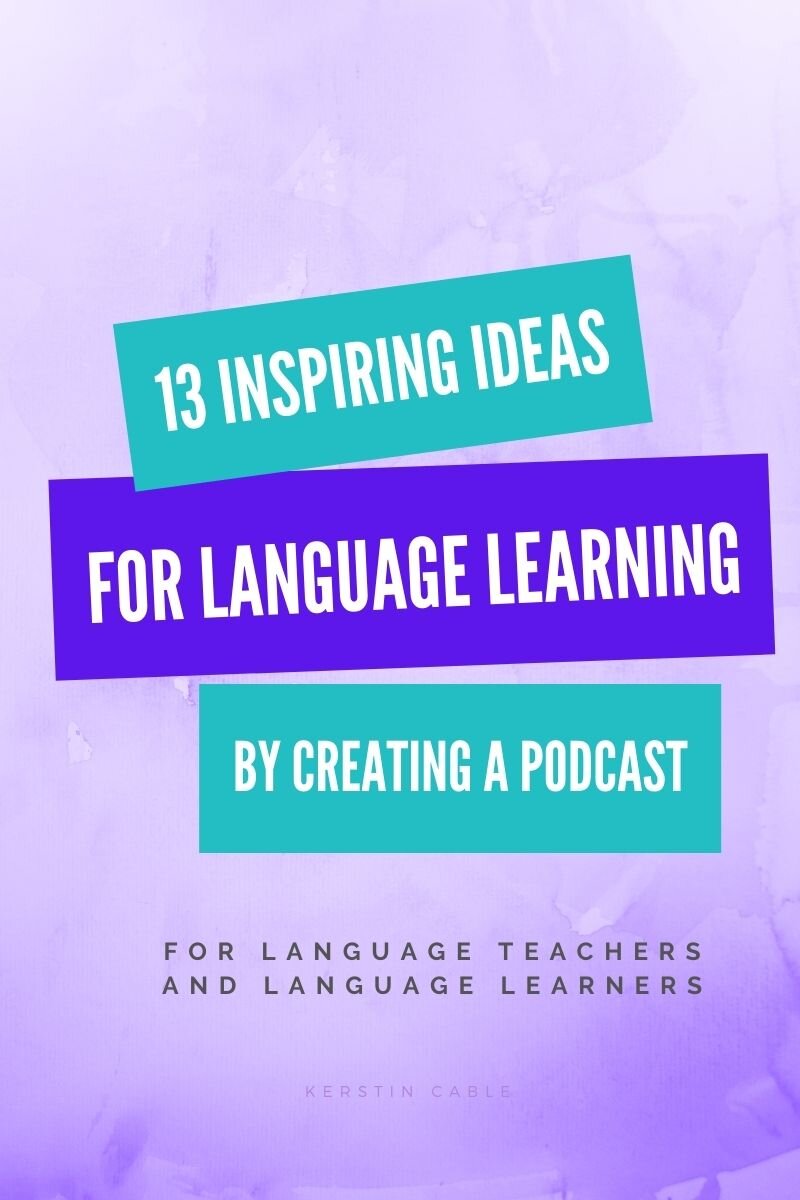A Talk with Suzanne: Grad Student and Language Coachee
Suzanne (@suzanne.linguist on Instagram) is a self-proclaimed language dabbler, who's hobby has always been trying out little bits of languages here and there.
But as she moves closer to finishing her Master's in Library Science, she wanted to take her linguistic curiosity to the next level and work towards fluency in several languages.
That's when she began working with me as her language coach. Here are some of the tips she laid out for anyone thinking about trying out coaching for the first time.
1. Feeling a little nervous is normal.
Suzanne admits she was excited, "and also feeling a little anxious." Not knowing what to expect is normal, and with time going into sessions will feel more and more natural.
2. When booking your session, leave a note to your coach about what you want to talk about.
When using an online booking platform, most coaches have a place where you can leave a note. If you have an idea of what you want to discuss during your session, you can drop it there for them to glance at before the session.
3. During the days before your session, reflect on your problem.
Suzanne's two biggest tips involve preparing yourself for your session.
"First and foremost, come with questions," she says. "Second, have some idea of your topic priorities. My best sessions with Kerstin are when I’m very well prepared."
And how can you go about thinking about those questions?
"I’ve tried different methods [of preparing]," says Suzanne. "I once did a mind map. Usually I brainstorm in a digital note. And always I ask a polyglot friend or two, which is invaluable, as they’ll remind of things I brought up but had forgotten about."
4. Be present and truthful.
There might be a bit of nervousness in the first session or two, Suzanne reflected. But she also joked: "Stay calm... you’re in good hands!"
Remember: language coaches have seen plenty of problems before, so if you openly share your roadblocks or frustrations with them, that's not admitting failure. In fact, it's the first step to fixing the problem!
Straying off-topic a bit of thinking out loud might be a normal part of this process. "I can get off on tangents," admits Suzanne.
But part of working through these problems is also helping you explore different angles while saying on the right path.
5. Have a scrap paper nearby, but don't worry about it.
"I don’t usually take notes," says Suzanne.
The goal is to be present and thoughtful. But jotting something down might be helpful every once in a while.
6. After your session, take time to reflect and plan.
Coaching tends to get your creative juices flowing. For some people, pausing post-session to journal or talk to someone can be a great extension of what you worked on with your coach.
"In the hours following a meeting, I often brief polyglot friends on any new ideas or directions," says Suzanne. "I also put any time-bound items in my task manager, which is where I organize my language hobby."
7. Use your new skills and solutions during the coming weeks
Remember: a language coach can't magically teach you a language. (Teaching you a language isn't even their job!)
So it's important to take ownership of your own learning process. See what works, see what doesn't, and see everything through.
Then, bring in those new experiments and experiences into your next session.
8. Connect with other language learners
Over and over in our interview, Suzanne kept bringing up one thing: the online language community.
First, and most obviously, there are the native speakers of the languages we want to learn.
"I'm motivated to learn modern languages because I'm fascinated by cultures and communities. Interacting with native speakers, I've learned so much about their lives and the way they think."
But outside of just language exchanges or tutoring relationships, there are also huge communities on Facebook, Instagram, Reddit, and Tumblr of other people who, regardless of language, want to connect with us.
"Language learning for me brings more joy when I can geek out with those who 'get' me," she says. "I love the mutual encouragement [and] the camaraderie."
With this community, you don't necessarily need to speak the same language--just love to talk about struggles, victories, and new experiences.
"Sometimes we're too close to ourselves to see the bigger picture," says Suzanne. "Language friends and coaches inspire and inform us!"














